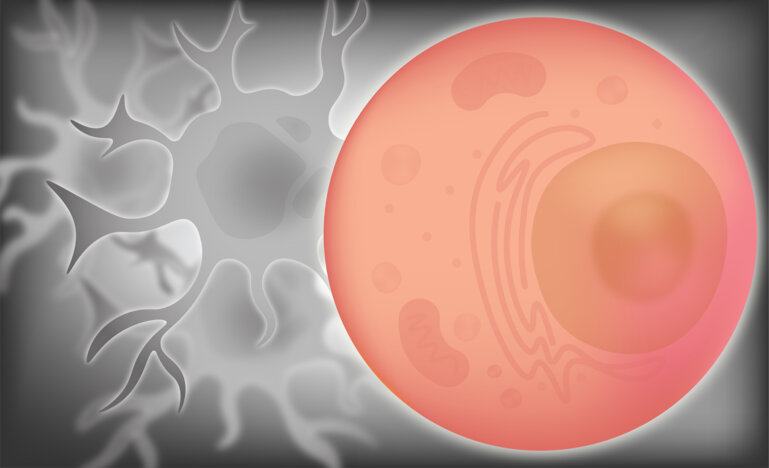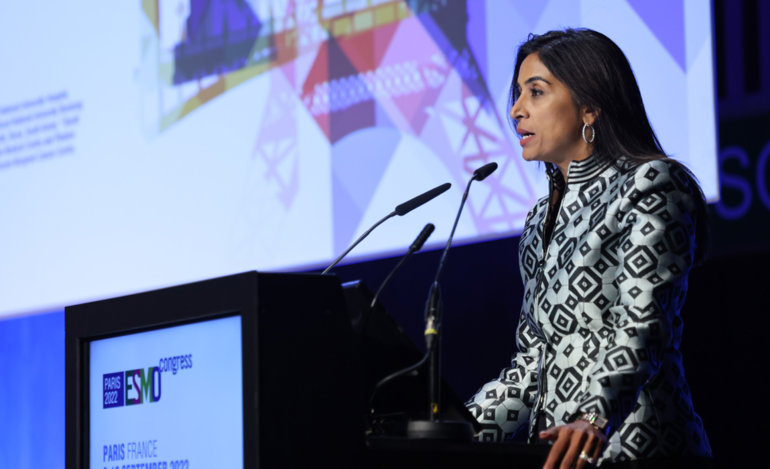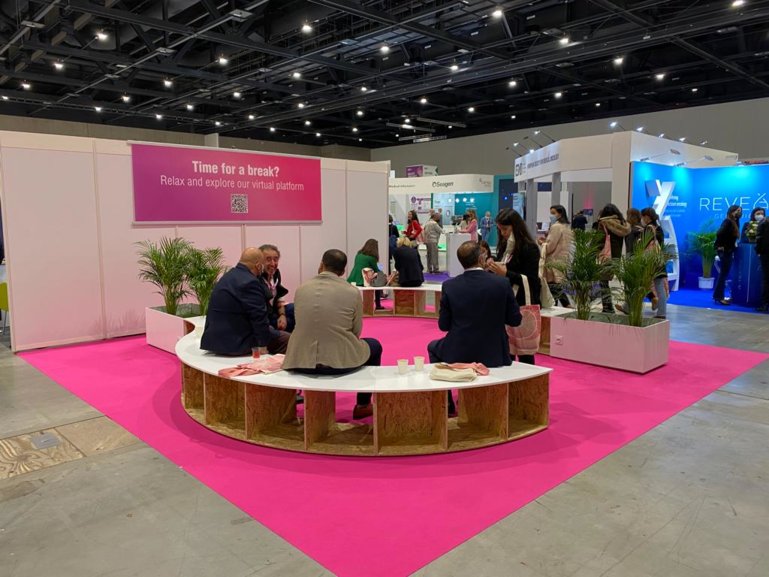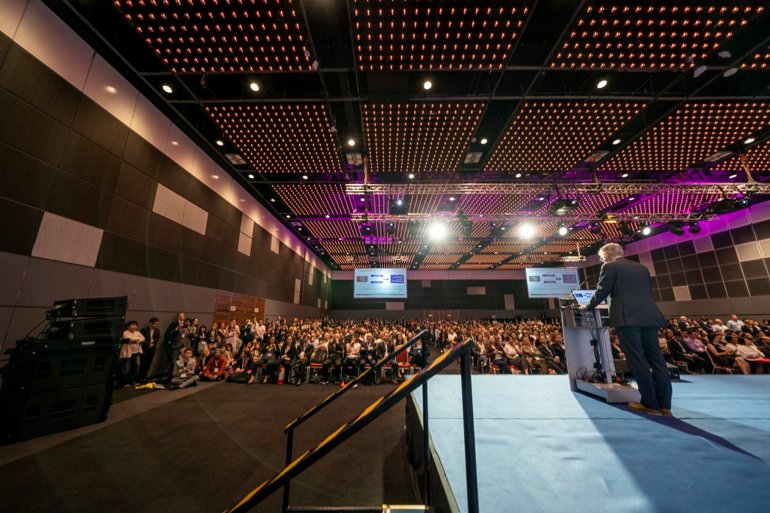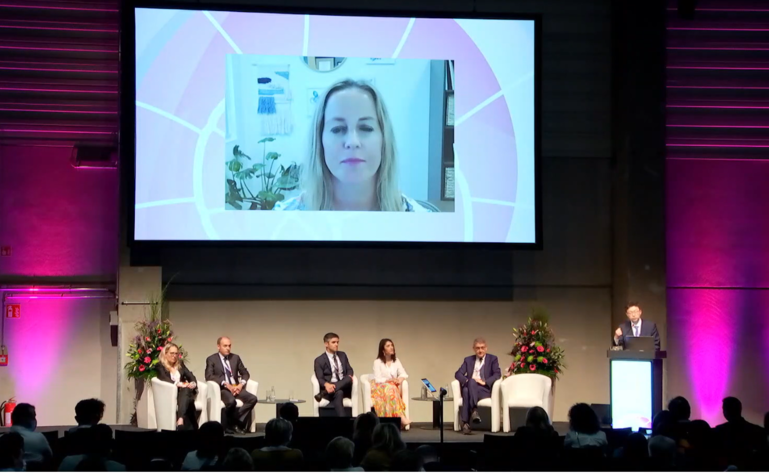For the recipient of the ESMO Award for Immuno-Oncology 2020, Dr Jedd Wolchok, one of the biggest challenges in the field is knowing how and when to de-escalate immunotherapy
In his keynote lecture at the ESMO Immuno-Oncology Congress 2021, recipient of the ESMO Award for Immuno-Oncology 2020, Dr Jedd Wolchok, Memorial Sloan Kettering Cancer Center (MSK), New York, NY, USA, will discuss ‘Checkpoint blockade therapy for melanoma: combinations to improve outcomes’.
What attracted you to work in immuno-oncology?
Back in 1984, working as a young intern in a laboratory developing antibodies for cancer treatment, I conducted translational studies around a phase I clinical trial in patients with melanoma. I very quickly learned a tremendous amount about the limited efficacy of standard cancer treatment approaches and the possibilities that existed for improvement with immunotherapy. I was certain from my experiences in the laboratory, particularly with experimental models of melanoma, that there was a strong scientific basis to support immunotherapy as a valid treatment; unfortunately, we just did not have the tools at that time to realise its potential.
What do you consider to be your greatest achievements so far in immuno-oncology?
It is very gratifying to have been involved in a number of ground-breaking studies in the area. First of all, I was a part of the trial team that demonstrated conclusively that ipilimumab was effective in the treatment of patients with unresectable stage III or IV melanoma, whose disease had progressed on therapy (N Engl J Med. 2010;363:711–723). I subsequently had the privilege to lead the programme that explored combined checkpoint blockade with ipilimumab plus nivolumab as first-line treatment for unresectable stage III or IV melanoma. The CheckMate 067 trial reported highly impactful progression-free survival data (N Engl J Med. 2015;373:23–34) and led to the US Food and Drug Administration approval of the combination in this setting. We recently reported a 6.5-year follow-up of these data, showing that the median overall survival of patients receiving ipilimumab plus nivolumab is just over 6 years (J Clin Oncol. 2021:JCO2102229). This is in stark contrast to what could have been expected pre-immunotherapy, when survival was only around 7 months, and shows that we have come a very long way in a relatively short period of time. However, there is still a lot to do. If half of the patients are surviving 6 years, half are not and that means we need to find better therapies.
When did you realise that immuno-oncology was not a niche field anymore?
The story of the Immunotherapeutics Clinical Core – a specialised centre at MSK for phase I clinical trials of new immunotherapy agents – has a lot to say in this regard. It was set up back in 2012 at a time when immuno-oncology had begun to show promising results. It was clear to me that if we were to make progress in drug development, we needed a phase I clinical trial unit run by researchers who understood the mechanisms underlying the activities of the new medicines and the specific challenges of the field. This specialised unit enabled us to attract a wide portfolio of trials, including some of the early studies of combined CTLA-4/PD-1 blockade, and led us not only to uncover diverse patient populations who could benefit from such agents but also to learn more about their mechanisms of action. It was a very successful venture which, early in its life, enrolled 200 patients to trials in a single year. Around 3 years ago, the Clinical Core was absorbed back into our general phase I clinical trial programme. This was a cause for celebration rather than commiseration because it recognised the fact that immunotherapy is no longer considered a niche option by the oncology community but is instead acknowledged as the fourth pillar of cancer treatment, alongside surgery, chemotherapy and radiotherapy.
What do you think are the most important current and future challenges in immuno-oncology?
The first challenge is how to use new strategies to elicit immunotherapy responses in patients with tumours that are not immunoreactive. One approach is to supplement patients’ immune repertoires with engineered immune cells or tumour-infiltrating lymphocytes (TILs). Another possible strategy is to focus on initiating new immune responses, rather than disinhibiting existing T cells, by enforcing and enhancing antigen presentation through the use of oncolytic viruses and other intratumoural therapies, such as toll-like receptor agonists.
We must also find ways to decrease the severity and incidence of immune-related toxicities, particularly late toxicities. This has given rise to efforts to de-escalate treatment intensity and identify the minimum amount of immunotherapy required to provide clinical efficacy. This segues into the unavoidable issue of financial toxicity. These are expensive medicines. While public health policies are required to address cost, it is incumbent on oncologists to find ways to identify when a patient can safely stop receiving treatment. To this end, the ongoing phase II PET-Stop trial (NCT04462406) is using positron emission tomography imaging and biopsy biomarkers to try to determine when anti-PD-1 therapy can be discontinued in patients with advanced melanoma responding to treatment.
Keynote Award 2020 lecture: Checkpoint blockade therapy for melanoma: combinations to improve outcomes
10.12.2021, h. 12:35 – 13:05, Congress virtual platform


